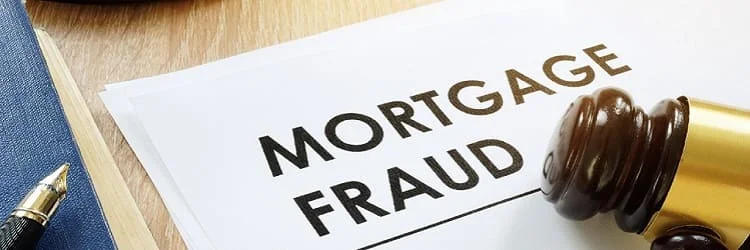What to do about mortgage fraud? What is mortgage fraud anyway? You see your neighbor Bill every day. In the morning, he walks down the driveway and picks up the paper. He's come to your backyard BBQ; you've gone to his. His kids play with your kids. If someone asked you if he really lives there, you would be able to say "yes" honestly. There's no way Bill is committing "Mortgage Fraud." But what about Harvey, who lives three doors down the street? You never see him and his family. In fact, Harvey is engaged in Mortgage Lender Fraud. What's that, you say? It's not that the lender is defrauding the homeowner, the lender went through the usual steps in Mortgage Loan Processing, and the entire Mortgage Loan Process was valid and correct. The fraud comes from the other side of the deal. Harvey really doesn't live there. Even though his FHA mortgage stipulates that Harvey must live in his purchased home, he doesn't. He's renting it out and committing Occupancy Mortgage Fraud.
There are other kinds of Mortgage Fraud as well: making false statements about income or debt, falsifying bank statements to make it appear that the borrower has more savings than they really do. In fact, any misstatement about anything on a loan application could be considered mortgage fraud. A mistake is not fraud. A lie is.
How Do Detect Mortgage Fraud?
To many people, lying on a loan application is no big deal. What is a big deal is the penalty for doing it. If the intent is to use the property as a rental or investment property, the temptation is real: the down payment on a residence might be as low as 3%, while on investment would be at least 15%.
Both lenders and enforcement agencies have some tools that will raise a red flag in certain circumstances: If an applicant is buying a home that entails a long commute to work or if they have multiple applications out to other lenders. If a lender reasonably believes that fraud may be involved, they might file a Suspicious Activity Report with the Treasury Department's Financial Crimes Enforcement Network. In that case, the department's database may reveal the truth. And then, depending on the scope of the fraud, either the lender will reject the application or the Treasury Department will investigate and possibly prosecute. Offenders have been known to receive serious prison time if convicted.
Mortgage Fraud Schemes And Scams.
Mortgage fraud usually results in a higher default rate as borrowers overextend their finances or their luck runs out, and they're discovered through chance. The result is higher insurance costs and more expensive qualification procedures. But not all mortgage fraud is residency-based. Other classes are equally harmful to the housing industry and other legitimate borrowers.
Straw Buyer – refers to a person who purchases on behalf of another person who supplies the funds to do so. This may or may not be illegal on its face, but if the goal is to defraud an individual or financial entity, more than likely, it is unlawful and could result in criminal prosecution. A straw buyer is used when the actual purchaser may not qualify for a mortgage, either because of bad credit or intention not to honor the terms of the mortgage.
Flipping - is a term that describes purchasing a home, then quickly reselling it. The term is used to improve the property and resell it for profit. But it also can be used to describe essentially gambling on the value of the home increasing and then selling. It can be risky and may violate the mortgage terms that may require a minimum residency term.
Occupancy fraud - is a type of mortgage fraud that occurs when the borrower states a property will be owner-occupied when they have no intention of doing so. Because lenders offer lower interest rates on owner-occupied properties, This fraud is relatively common, and violators may also be criminally charged.
What To Do About Mortgage Fraud? Simple. Don't.
In today's interconnected financial universe, it's much easier to detect mortgage fraud even before all the papers are signed. Every statement made by borrowers is scrutinized, every document is double-checked for authenticity, and forging things like pay stubs and bank statements convincingly is nearly impossible. So chances of this lie getting past auditors are smaller than in the decades past. And if you're caught, you may never have the opportunity to buy a home under any circumstances since you'll be flagged as a bad risk. Even if you initially get away with it and are later discovered, you could be on the hook for all the mortgage amount right now! Today! And even go to prison for years.
So be smart and tell the truth.

Leave A Reply